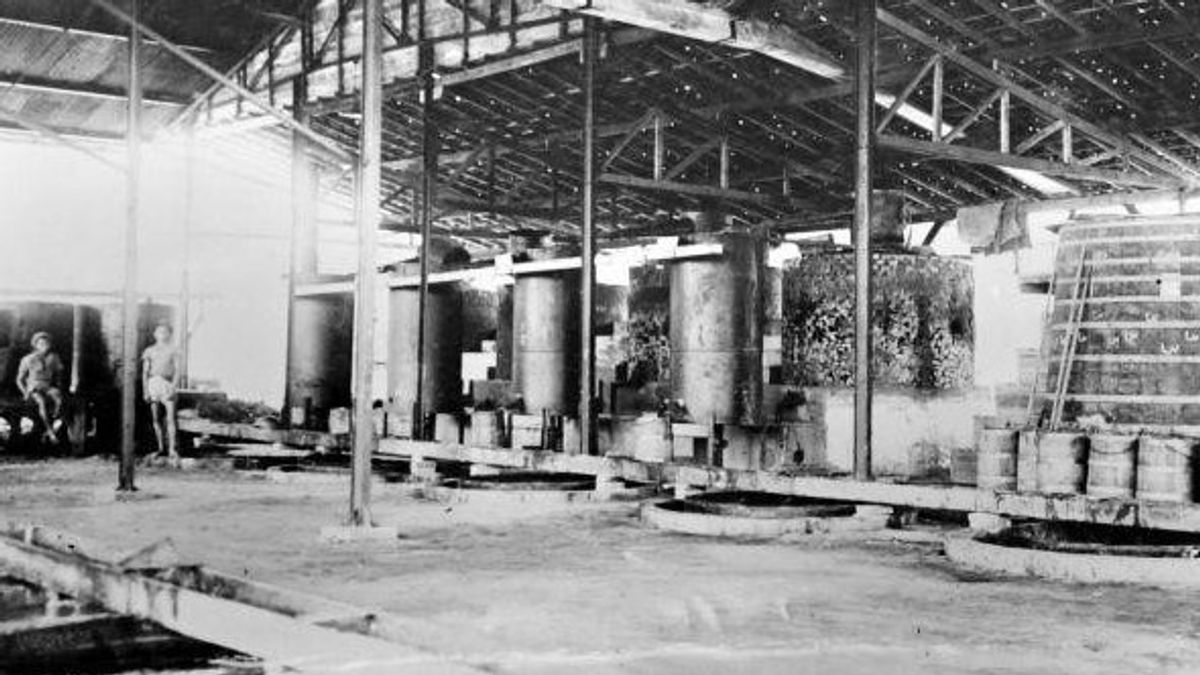JAKARTA - The business of buying and selling liquor (alcohol) is a profitable business in Batavia. The enthusiast is piled up. There are quite a lot of types of liquor that are presented. From beer, gin, to wine. Everything is easy to get, as long as you have money.
The alcohol existence makes the habit of drinking alcohol thrive. Every day the Dutch perpetuated their drinking. The effect is everywhere. They often look for targets of anger. The action of beating the existing slaves, especially.
The Chinese and Dutch are important actors in lasting the liquor business in Batavia (now: Jakarta). The two ethnic groups often act as producers and consumers of alcohol in the era of the Dutch Trade Airlines, the VOC. The business sold well. The return of the capital was fast, fortunately it was also big.
The presence of various liquor factories in Batavia is proof of that. From brewerys, gin, to arracks. The factories increase every year. The production has also increased. Everything because alcohol has become an important lesson in every oversight of the life of the Batavian people, from birth to marriage. Nothing. Whatever the celebration, get drunk should not be left behind.
The habit of getting drunk even appeared in the funeral ceremony. The family who died while having the obligation to provide snacks and drink hard for mourners. However, the presence of alcohol often brings problems.
The funeral ceremony, which in fact was filled with sadness, turned into a battlefield. People under the influence of alcohol caused chaos by hitting each other. The fight was inevitable. The incident was repeated. While the VOC refuses to prohibit the circulation of liquor that accounts for taxes is quite large.
The funeral ceremony must end by holding a proper banquet, usually parodied as a wedding reception at the funeral. In the Batavia era, the average person was not too long and the funeral was carried out alternately, so that the funeral ceremony changed from a sad event to a happy event.
The event was full of laughter and drinking even though it was being bullied. Archival records in 1658 shared that due to the fact that quite a lot of liquor was stuck at the funeral party, there were frequent acts of humiliation and row around the tomb. Therefore, it was issued a ban on consuming liquor during the burial ceremony, "said historian Hendrik Niemeijer in the book Batavia: The XVII Century Colonial Society (2012).
The habit of getting drunk among the Dutch did not only carry disputes between themselves. Sometimes other people are often affected by the sap from the Dutch masters. Among slaves, let alone.
Disaster for the slaves to meet their enemies on the streets of Batavia. The influence of alcohol was the main cause of catching up with the Dutch with their friends spontaneously venting emotions on the slaves who were found on the streets. The beating was inevitable.
Common sense is no longer used by the Dutch. Beating under the influence of alcohol continued to be preserved even though there were slaves who had serious injuries. The power to kill slaves was strengthened by the views of the Dutch who considered the lives of the slaves low. Alias, they saw that the lives of slaves were worthless.
The beating of slaves is not only carried out on the streets. The action of playing judges by themselves is often carried out by the Dutch master who likes to get drunk. In plantations, especially. The owners of slaves, who were influenced by alcohol, often tortured slaves, and even died.
The incident keeps repeating itself. However, the VOC didn't take much action. Instead of breaking the chain of the spread of alcohol, punishing the drunk who did the beating alone couldn't. The owner of the new power wants to move to punish when the one being beaten is a slave from a top VOC official.
When soldiers or such class members become residents of the city of Batavia, their ambition is to have one or two slaves and a big injury to the poor if they fall into their hands, because they will force the slaves to work day and night without resting to support themselves and themselves, while the employers get drunk in bars all day long.
"They tortured the poor slaves so cruelly that most of them felt hopeless and committed suicide. Some hanged themselves, some used iron, some fell into the water where death did not appear to be too violent," Jean Bastiste Tavernier said as written by Bernard Dorleans in the book Indonesians & French People (2006).
The English, Chinese, Japanese, Arabic, and French versions are automatically generated by the AI. So there may still be inaccuracies in translating, please always see Indonesian as our main language. (system supported by DigitalSiber.id)








